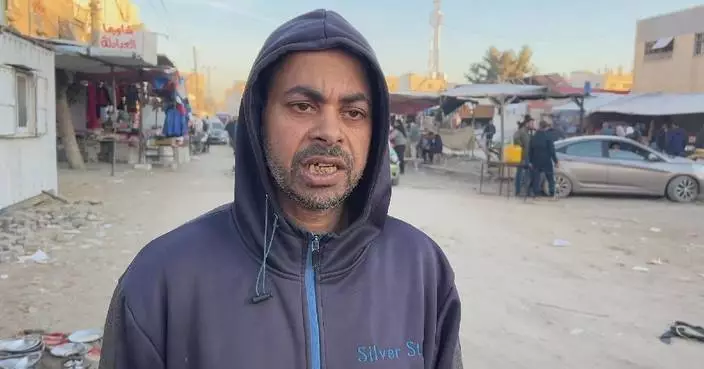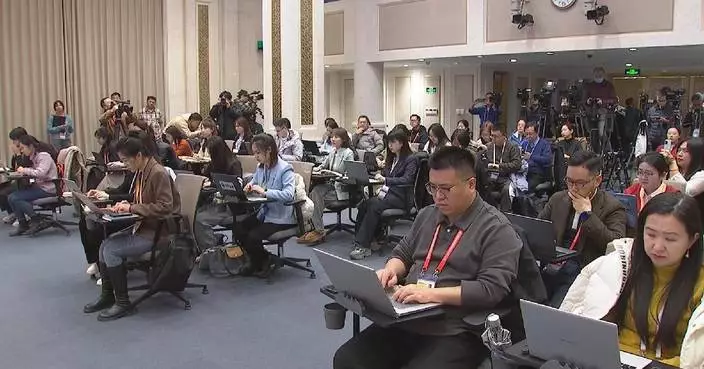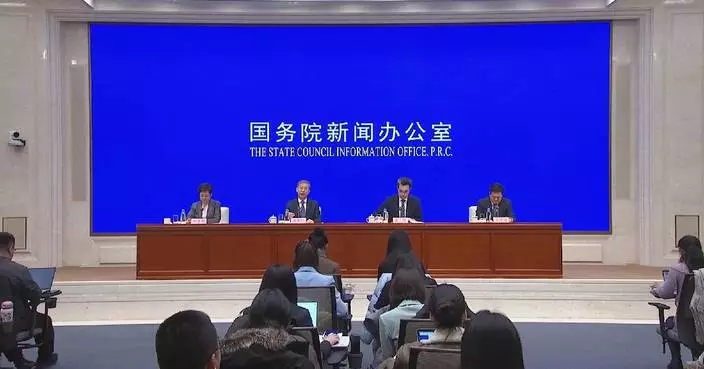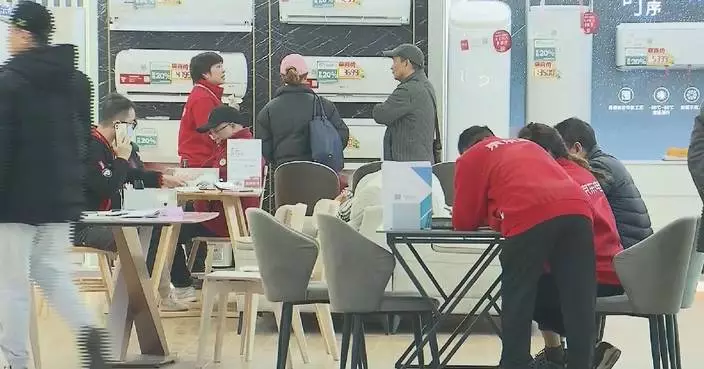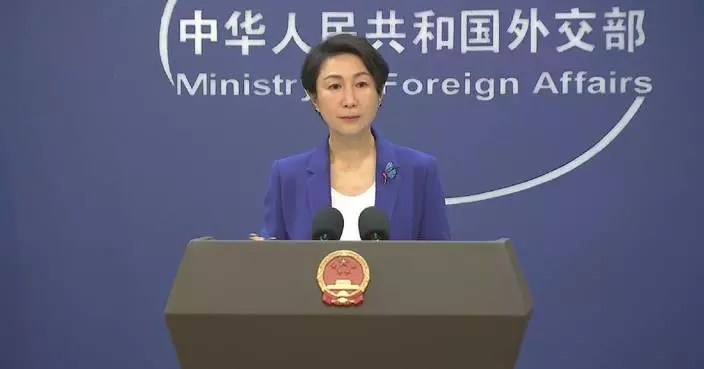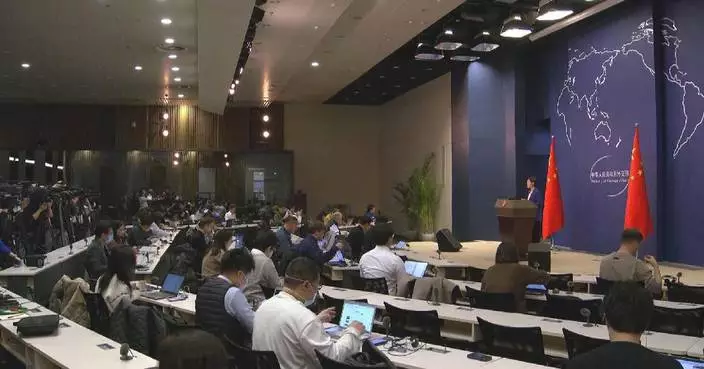As the new year approaches, residents of Gaza remain trapped in war and blockade, with severe shortages of natural gas and fuel forcing them to rely on firewood to endure daily hardships.
Eighteen-year-old Mousa Matouk trudged through the ruins of Gaza City, carrying a heavy piece of wood on his back. Displaced from his home, Matouk's daily task is to scavenge for firewood to sell and support his family's basic needs.
"We fled from the Jabalia refugee camp. Most of the young men, women, and children here go to Tal al-Hawa in southern Gaza City to collect wood and sell it to survive. Israeli drones often hover overhead, and some have even attacked us. There's no electricity, no water, no gas, nothing we need to live. I spent more than an hour walking far away just to find this piece of wood," said Matouk.
Across the heavily bombarded and blockaded region, scenes of residents hauling firewood are common. Amid the ruins, people search for anything burnable to cook their meals or stay warm.
Since the escalation of the Palestine-Israel conflict on October 7 last year, Israel's comprehensive blockade has nearly halted fuel and natural gas supplies to Gaza. Only limited amounts of fuel have been allowed in.
"Before the war, firewood cost 0.5 shekels per kilogram. But since the Israeli military attacked Jabalia in October this year, prices have skyrocketed to four shekels per kilogram. Most people who come to me now can only afford to buy one or two kilograms of firewood at a time," said Ali Bastan, firewood merchant in Gaza.
The soaring price and scarcity of firewood have left many families unable to afford it. Local residents said that due to the increased demand for firewood, the forests on the outskirts of Gaza City have now been almost completely stripped bare.
"In the past year of war, we've been forced to adopt this way of living. The lack of natural gas has drastically worsened our living standards. It feels like we've gone back to the days of clay ovens and primitive cooking methods," said Nasser Jaber, a Gaza City resident.
With wood supplies dwindling, people have turned to burning tree branches, furniture scraps, and even construction debris. However, the toxic smoke from burning these materials has caused a rise in respiratory illnesses across Gaza.
As the shadow of war lingers over the region, the question of how Gaza's residents will face the coming year remains unanswered.
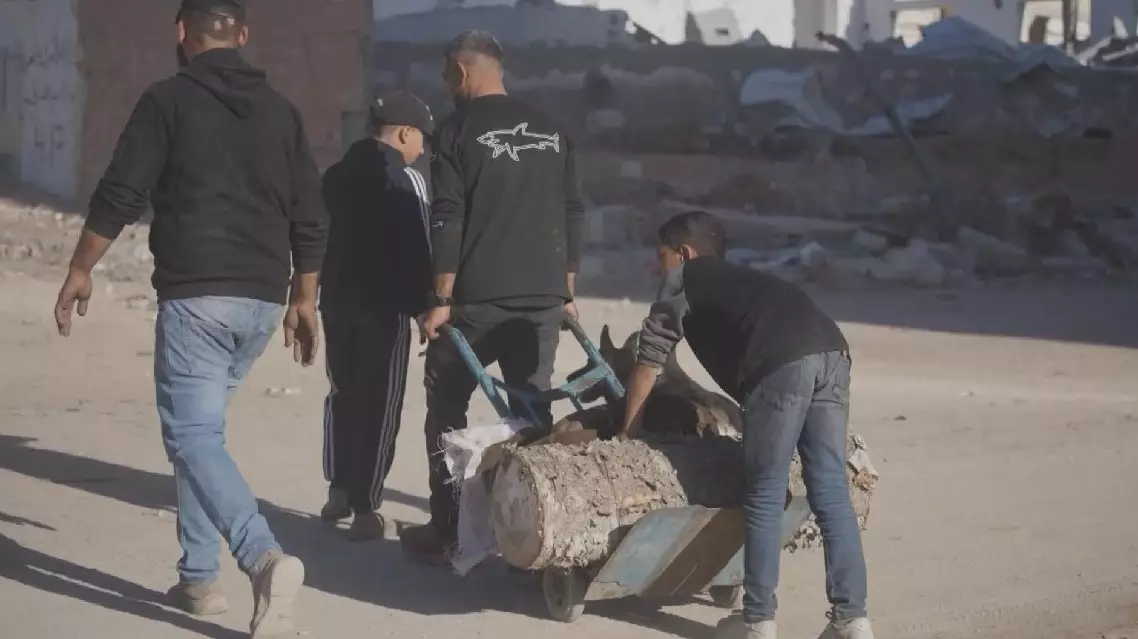
Gaza residents struggle to survive winter with firewood amid blockade and fuel shortages
China remains resolute in its pursuit of the dual-carbon goals of carbon peaking and carbon neutrality, positioning the green transition as a core driver of high-quality development, according to Zhao Chenxin, vice chairman of the National Development and Reform Commission.
Speaking at a press conference on Friday in Beijing, Zhao outlined significant achievements in 2024 and provided a roadmap for 2025, which includes advancing carbon reduction initiatives, strengthening green industries, and enhancing ecological protection efforts.
"We've rolled out guidelines for accelerating the green transformation of our economy and society and advancing nearly 200 specific initiatives. We've also released a catalog of industries supporting this transition, promoting 112 green technologies and 47 advanced low-carbon projects. We've developed a two-year action plan for energy conservation and carbon reduction, along with seven sector-specific plans, achieving significant progress. It is predicted that we reduced energy consumption intensity by over 3 percent last year, surpassing our targets. Additionally, we’ve implemented 194 national standards in the 'dual-carbon' field and supporting local governments in establishing carbon emission budget systems," Zhao said.
Zhao also emphasized that efforts in resource conservation and ecological protection continued to gain momentum.
"We've rolled out policies on promoting food conservation, reducing food waste, developing water-saving industries, and encouraging waste recycling. More than 60 billion yuan (about 8.2 billion U.S. dollars) of government funding has been allocated to enhance environmental infrastructure and support major ecosystem protection and restoration projects, including the 'Three-North Shelterbelt Forest Program'. Additionally, we've formulated the Ecological Protection Compensation Regulations, and increased the annual funding of central and local governments to nearly 300 billion yuan (over 41 billion U.S. dollars)," Zhao added.
In addition, significant attention was given to programs aimed at large-scale equipment upgrades and consumer goods trade-ins.
"In 2024, we allocated 300 billion yuan in ultra-long-term special treasury bonds to support large-scale equipment upgrades and consumer goods trade-in programs. In the first 11 months of the year, national investment in equipment and tool procurement rose 15.8 percent year on year, contributing 65.3 percent to overall investment growth. Through the trade-in program, over 60 percent of consumers chose new energy vehicles, driving the domestic penetration rate of new energy passenger cars to over 50 percent for six consecutive months," Zhao explained.
Looking ahead, China will mark two major milestones in 2025 - the 20th anniversary of Chinese President Xi Jinping introducing the concept that 'lucid waters and lush mountains are invaluable assets,' and the fifth year since China announced its dual-carbon goals.
Zhao said that the commission will continue to work with relevant stakeholders and prioritize these efforts by advancing carbon reduction, pollution control, green growth, and ecological expansion, while accelerating the comprehensive green transformation of the economy and society.
"We will actively plan the carbon peaking initiatives for the 15th Five-Year Plan (2026-2030), develop integrated evaluation and assessment methods, advance national carbon peaking pilot projects, and accelerate the building of zero-carbon industrial parks. We will further strengthen fiscal, financial, investment, and pricing policies and standards to foster the healthy development of green and low-carbon industries," Zhao stated.
"We will continue to enhance environmental infrastructure, implement major ecosystem protection and restoration projects, and explore mechanisms to realize the value of ecological products. We will work to achieve greater results in promoting the programs of large-scale equipment upgrades and consumer goods trade-in, so as to increase funding, broaden coverage, optimize the implementation of the policies, and amplify their leverage effects in 2025," Zhao concluded.
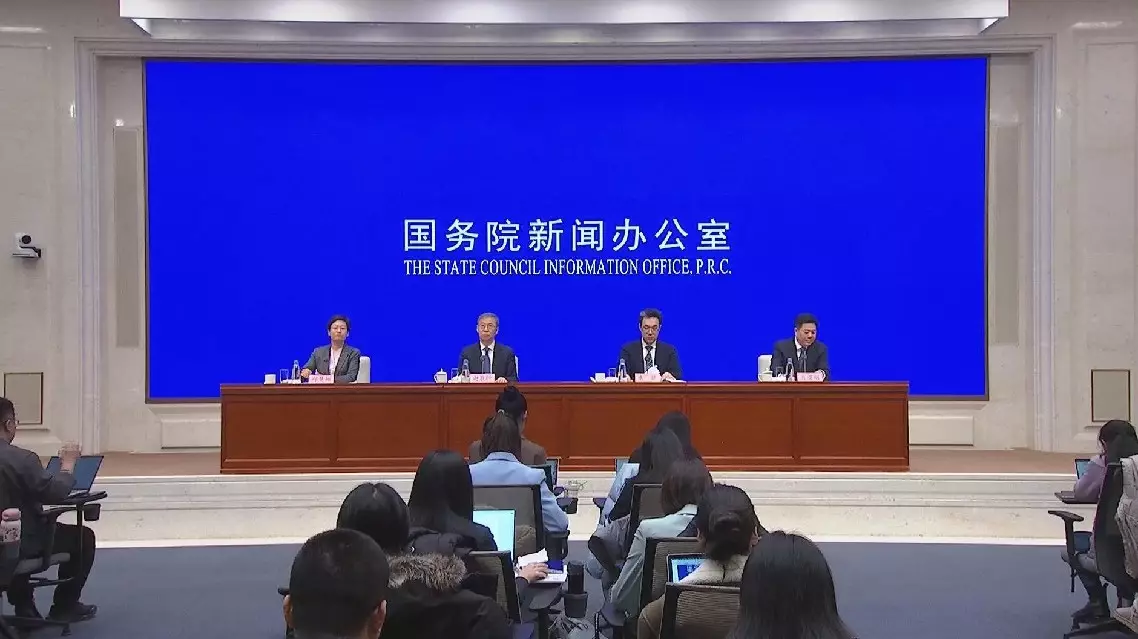
China reaffirms commitment to green transition and dual-carbon goals: NDRC




